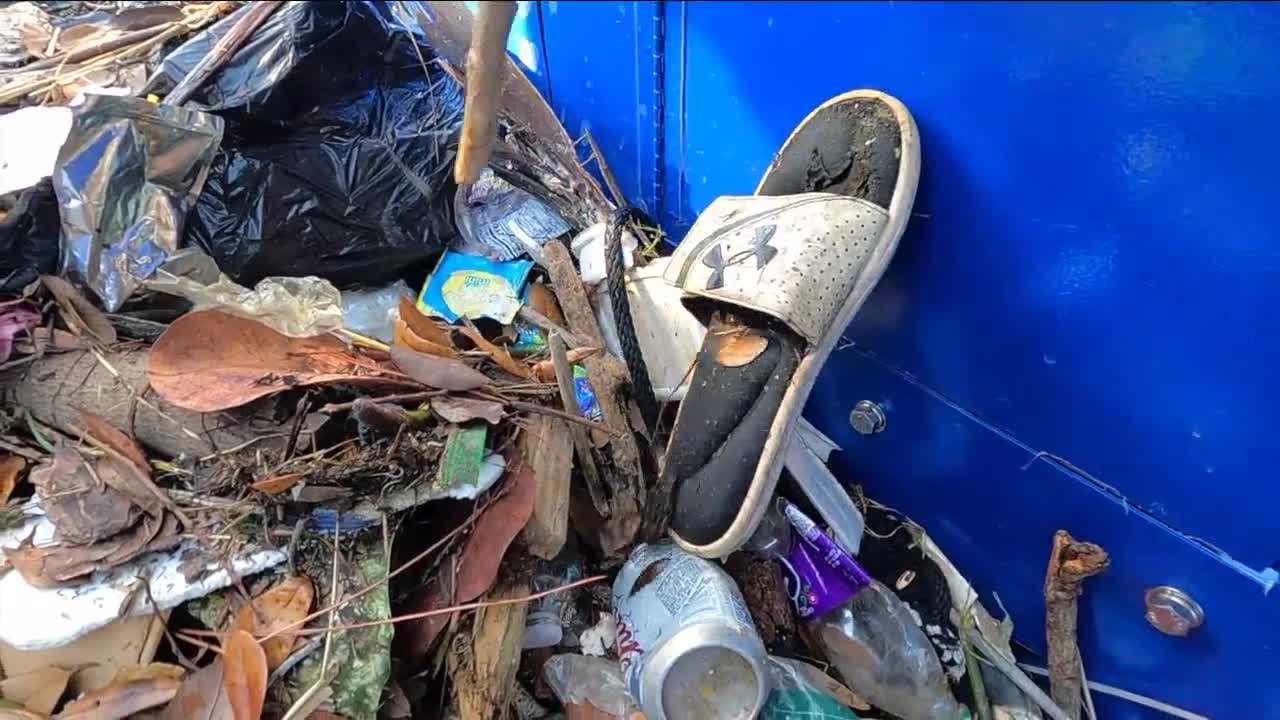TAMPA, Fla. — The City of Tampa’s new Litter Skimmer has been hard at work, already collecting hundreds of pounds of trash in the waters around Tampa. While they work, crews want to remind people to watch what you do with your waste.
For an area surrounded by water, Walter Townsend has an important job.
“I just love being on the water, cleaning up the environment, and making it safe for boaters out here, for the marine life as well,” said Townsend.
He’s the captain of the Litter Skimmer, the City of Tampa’s recently launched trash boat.
“She’s definitely not like a Ferrari, but she handles like a Cadillac,” said Townsend.
The boat’s mission is simple: pick up floating trash along the Hillsborough River, Davis Islands, and the Bay. The city explained the boat will operate eight hours a day, four days per week.

“Utilize trash cans because that one bag that could be inland will make its way back into the water system to the sewer drains or just wind,” said Townsend. “For the boaters, bag your trash up on the boat. Keep it on the boat.”
ABC Action News watched the Litter Skimmer in action Thursday morning. The trash boat collects anything from plastic bags, water bottles, and Styrofoam to big pieces of wood.
“If one of those rowboats were to hit it, it would do some serious damage to the boat and or the personnel on the boat,” said Townsend.
The Litter Skimmer also seems to have proven an already effective tool: In its first week on the job, the city says it collected 840 pounds of debris.
“I look at this boat as a result of the problem. This is the medication to the symptoms that are ongoing,” said Chuck Conklin, the Director of Waste Energy for the City of Tampa.
Conklin explained the real issue is keeping the trash out of the water, so they’re asking people to toss their trash the right way to help keep our local waterways clean.
“We can clean it up all day, but I’m hoping to use this vessel as an inspiration to people to focus more on their day-to-day actions and what they do with their waste when they’re out in the public or on the water,” said Conklin.



